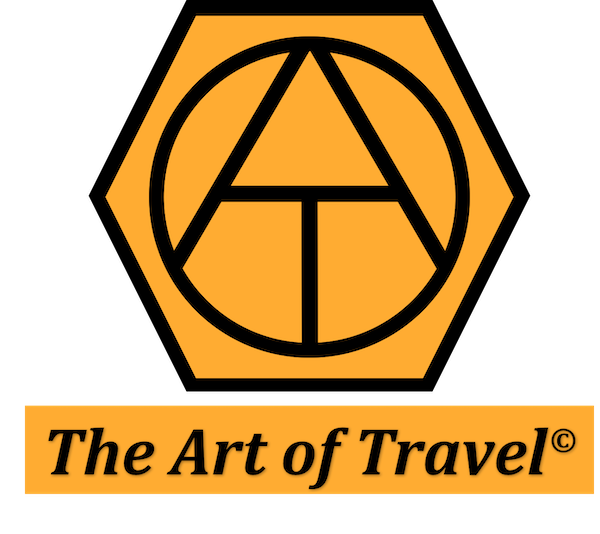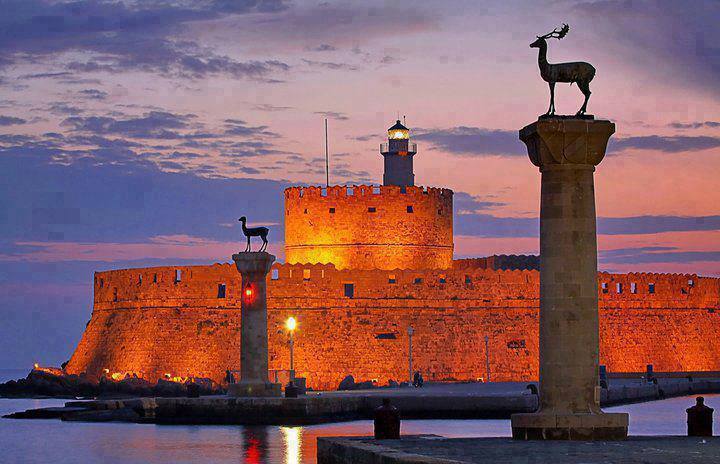Breathing in the Orient, but being in Europe, Rhodes, Greece
Of course, this wasn’t just about my soul as Rhodes is very much a destination for any traveller in our seas. I listened to the story of Smara’s family with great interest. They had always enjoyed a prominent place in the island’ s society, even though her ancestors weren’t originally from Rhodes but rich merchants from the island of Mytilene (in the Nothern Aegean), and even further back in time, from the shores of Asia Minor.
The port of Rhodes, Greece.
“They had the largest soap industry in the Eastern Mediterranean and they would send their wares, using their own ships, to the Middle East, when those areas still belonged to the Ottoman Empire,” she told me.
I had never imagined this particular area of commerce. All I knew about was the trading of wheat from the Black Sea to Marseilles, or about the islands’ wines that would travel as far as Odessa, but soap products produced and manufactured by my friend’ s family from Rhodes that made their way to the Middle East was yet another window that was opened to me as we were sailing the Eastern Aegean.
When the Romans annexed Greece to the Roman Empire 146 BC, Rhodes became a provincial harbour while entire flotillas carried off the treasures of the island to Rome to grace patrician villas. A huge leap in time and... twenty centuries later Rome returned in 1912 and sent governors to the island once more, which became a colony of modern Italy along with the rest of the Dodecanese. This time, Italy didn’ t seize Rhodian works of art but reconstructed and adorned the city giving the island much, taking just as much in return.
The Italian-era Provincial Government building in Rhodes.
“First of all, it was forbidden to teach Greek in schools. We were meant to be italianized,” Smara told me when I asked her what life had been like on Rhodes when her parents were young. “Only Italian was spoken in public – not in the homes, of course. I believe the Italians loved our island, they cared enough to support it financially and brought everything that was good about Italy into our homes. At least, after the Turkish occupation, we got a breath of Europe!”
The island was located on the crossroads of the seaways, and it was the Knights of St.John that transformed it into a safe harbour in the Middle Ages. More and more ships from Genova, Ragusa, Barcelona and Valencia used it to get to Famagusta (Cyprus), Jaffa and Alexandria. The Knights left in 1522 when, after a 6-month siege, they surrendered to the Sultan Suleiman, the Magnificent.
I went back down to the Old Town and found myself in a labyrinth of dwellings, alleys, arched passages, squares shaded by plane trees, churches and mosques, knightly buildings, the Hebrew synagogue, hamams, and the Gothic church of Our Lady of the Angels, the Ottoman Library, the Clock Tower built by Fehti Pasha in 1857.
Rhodes Old Town.
How wonderful! Knightly Europe joined with the Orient in a town that teemed with life and people from many cultures co-existed harmoniously. I truly believe that the Old Town of Rhodes is unique in our seas. You have to walk it, get lost in its alleys, listen to the Rhodian boy sitting on a bench and playing a local instrument, the baklamadaki, sit at an old Turkish café and speak Greek to the owner, all the while feeling the wildness of the old stones of the medieval dwellings joining up with the smooth stones of the cobbled streets, breathing in the Orient, but being in Europe.
I think that this is the magic of our seas. Those who crossed them of old or those who saw Greek merchants arrive with their laden ships at the ports of the Western Mediterranean would always be left with one question: Christians, but not Westerners; Orientals, but not Muslims. Was there an answer? Truly, our islands are a crossroads on which our wealth has been built, both economic and cultural. From Corfu, easily reached and influenced by the West, to Rhodes, where the Orient played its part.
Discover more in the book: GREECE, The Dance of the Seas



